
Author: McKayla Eaton
Narrator: Becci Martin
Length: 6 hours 17 minutes
Series: The Demon Summoner Trilogy, Book 1
Publisher: McKayla Eaton
Released: Jun. 18, 2020
Genre: YA Fantasy
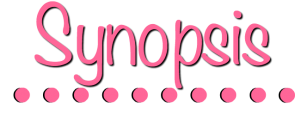
On an empty baseball diamond in a quiet Toronto suburb, a demon has been summoned. Seventeen-year-old Alton is miles away, just wishing he had a tutor he didn’t outsmart or outmatch. His prayers are answered when Professor Victor Orvius makes an unexpected visit, offering to teach Alton magic without the restrictions. The only condition is that he follow Orvius’s rules and not ask too many questions. Alton soon discovers he’s not Orvius’s only student. Reagan is a competitive young witch with a bad attitude and talent for sarcasm. Their personalities clash, causing trouble for both on more than one occasion, until they realize a greater threat than being one-upped. The demon threatens not only their chances at passing their magic finals — it threatens their lives. If Alton and Reagan can’t learn to get along, they could be facing their deaths…or an eternity together, trapped in another realm.


Mckayla Eaton is an author and book-lover living and writing in Halifax, Nova Scotia. She writes fantasy and science fiction and aims to build worlds that push the imagination of readers. She was raised on Indiana Jones and Fairy Tales and strongly believes every story ought to be an adventure story. She likes tragedies and happily-ever-afters and refuses to believe the two are mutually exclusive.
Website⎮Twitter
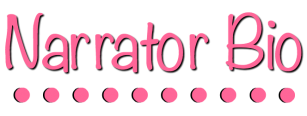

Becci Martin has been voice acting professionally since the early twenty-teens, but she's been entertaining smaller audiences of family and friends with her spirited storytelling since she was a little kid. Between projects you can find her traveling with her husband and adventure-loving dogs, boldly puzzling newspaper crosswords in pen, or playing bartender for establishment patrons and houseguests alike. She currently calls Kansas City home.
Website⎮Instagram
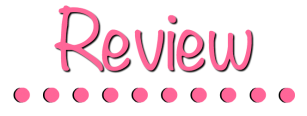
Summoned is my first book by Mckayla Eaton. It is a Young Adult genre book but hey its about magic. I actually enjoyed the book, the story line, the characters, and Mckayla Eaton's writing style were all really good.
Becci Martin is the narrator of this audio book. She does pretty well bringing the story to life. I liked her character voices and attitude.
The books main characters are a couple of teenagers Alton and Reagan and their Tutor Orvius. Reagan is a witch and always has been and was raised in a family with witches. Alton was raised mortal and was mortal until an almost fatal accident, then he became magic. Now he is in The Academy studying his craft so to speak. He is bored with clases and wants more of a challange and a really good Tutor. When Orvius comes to the school to meet Alton he is thrilled. Ovious takes Alton to his home under the guise of tutoring him. This is when he meets Reagan.
Once a the house the training begins, but all is not what it seems. Orvious has a secret agenda for Alton and Reagan. A Demon has been summoned and he needs them to take the Demon down and send it back to where it came from. Oh yea and he needs them to keep breathing afterwards too.
I received this audiobook as part of my participation in a blog tour with Audiobookworm Promotions. The tour is being sponsored by McKayla Eaton. The gifting of this audiobook did not affect my opinion of it.

Q&A with Author McKayla Eaton
- Do you believe certain types of writing translate better into audiobook format?
- I believe certain writers translate better to audio. I’ve read everything from YA to epic fantasy audiobooks, and genre and length don’t seem to factor into what makes for a good read. It’s all about voice and style. Some writers see their own words while others hear them. I find it’s the later that make for better audio books.
- Was a possible audiobook recording something you were conscious of while writing?
- No. Summoned is my first book and I was hardly imagining it being published let alone made into multiple formats, it’s just not the sort of thing you think about starting out. I also didn’t listen to audiobooks back then. Now, I take more time to consider how my writing might translate into audio, and I think that makes my writing stronger.
- How did you select your narrator?
- ACX held auditions and narrators could submit a sample. There were a few samples I had to choose from but when I listened to Becci’s I smiled. It was surreal, hearing my words read back to me in a way I’d envisioned them being read. She seemed to not just be narrating my book but reading it. She was excited when I wanted readers to be excited, and serious when the character’s were serious. I chose her because I thought she brought the book to life.
- Are you an audiobook listener? What about the audiobook format appeals to you?
- I always have one audio book on the go. Besides the obvious convenience of being able to go for a walk or do chores while reading, I like the format because it forces me to slow down. I’m a skimmer. I get that from my grandmother who will put her finger in the center of a page and move it straight down, as if only reading every tenth word. For a reader, skimming isn’t really a problem, but for a writer reading is practice, reading is learning. It’s important to pay attention to word choice and pacing and dialogue. With an audio book, even if I speed it up, I have to listen to each and every word.
- What do you say to those who view listening to audiobooks as “cheating” or as inferior to “real reading”?
- I used to feel this way too. I used to think listening to a book was lazy, and maybe if I’d never become a writer I’d still think that. But writing is a beautiful art because it transcends format. You must listen to music, and you can’t remove a painting from it’s canvas, but storytelling is boundless. A story is made of words and words are purely conceptual. Saying that an audiobook is cheating would be like telling someone that reading a translation is cheating. Story can be told in many ways and in many languages. Besides, being told a story is therapeutic; it’s going back to being a child and having a parent turn cardboard pages. It’s universal and comforting and no less a novel than paper and ink.
- How did you celebrate after finishing this novel?
- I wrote another book. I honestly wrote this book very quickly and didn’t see it as a huge accomplishment or anything. Not that I wasn’t proud of the book, but it had simply never crossed my mind that I couldn’t or wouldn’t finish it. So, when I did finish I sort of just said, “okay, well that’s done. What next?”.
- In your opinion, what are the pros and cons of writing a stand-alone novel vs. writing a series?
- From a marketing standpoint this question usually comes down to one debate: If you successfully market a series then you sell more books. Pro. But, there are many people who don’t like series so that could limit your audience. Con.
- I think it’s more nuanced than that, but you’ll find authors on both sides of this fence. Personally, I feel it comes down to the idea you have and what format will suit that idea best. I’ve read a lot of series that felt forced, as though the author made the concept stretch over more books that it required to tell the story. I’ve also read standalones that had so much series potential, but instead the author took every good idea he had and squished it into one book. What I’m getting at is there are pros and cons to both, but not all stories can be both. As a writer I have to decide what will be best for the concept I’m writing.
- What bits of advice would you give to aspiring authors?
- I hate this question because I hate most of the answers writers give! They always sound either degrading or cliche, both of which are totally unhelpful. I’ll just pick one piece of advice that’s super specific and may not apply to everyone, but I feel strongly about it: you don’t need an English degree to be a writer. In fact, if you’re taking an English degree right now, stop. Change your major or just flat out drop out of your program. I am serious. Writing essays and just being in the academic environment in general is hurting your writing. I took a Journalism elective in my third year and my prof took one look at my writing and said, “you must be an English major”. I asked how he knew, assuming he would praise me, and he replied that my writing was bland, wordy, and dull. And he was one thousand percent right—even if I hadn’t seen it at the time.
- Do you have any tips for authors going through the process of turning their books into audiobooks?
- Let your narrator know you’re there to help or listen or answer questions, but at the end of the day just let them do their thing. They are artists too. I’ve worked with narrators, graphic designers, cover artists, and what I’ve found is that the more parameters you give, the more it stifles creativity. I’ve tried narrating, which is how I know I suck at it. It’s a skill, like writing, and the narrator probably knows best. I’ve heard of issues such as names being pronounced incorrectly or narrators giving a tone of voice or an accent to a character that it’s inappropriate for, and if things like that come up just let your narrator know right away. A good narrator is going to ask questions like that up front anyhow.
- What’s next for you?
- First, book two of this trilogy comes out sometime early next year. Book three is written but not polished and will likely be out next year as well. As for my other side projects I’m currently outlining a stand alone YA fantasy to do with teens controlling giant stone MEC with ancient magic, and I’m toying with turning a sci-fi novella I wrote into a screenplay. But my main project is an epic fantasy novel I’ve been working on. It occupies most of my time. The outline alone is 40k, so it's going to be a massive work and I’m already very happy with it.
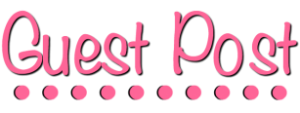
Author McKayla Eaton's Literary Inspirations
I used to hate reading as a kid. What really got me into books was Inkheart by Cornelia Funke. It’s a story about a young girl who goes into the world of a book in search of her father. There’s tragedy and humor and magic—and did I mention magic books?
I read a lot of Funke’s books and though they are all in translation (she writes in German) her stories were a huge inspiration for me and pushed me to get into writing. I read her work and said “I want to do this. I want to make stories”.
For a long time I read adult urban fantasy simply because it was one of the first things I picked up and the series are
. I totally skipped YA, so I’ve never read Twilight or The Hunger Games or Harry Potter or anything else book nerds my age grew up on. My tastes changed as I grew up, but it wasn’t until I started reading Brandon Sanderson that I started having that feeling again, that “I want to do THIS” feeling.
I liked his work so much I wanted to see who had inspired him, and it was like I’d opened a door on a whole new world of stories. There was Robert Jordan, David Farland, Orson Scott Card, Ursula K. Le Guin, Anne McCaffrey, Heinlein, Asimov, and the list goes on and on. I went backwards from how most people read these greats, and I think because of that it’s given me a better perspective of how I might one day fit in among them. I’m not simply one author in a million, shoving my books at the world and hoping they find an audience. I know my audience. I’ve read the books they’ve read. I know how those books influence my writing and why they speak to generations of readers.
We often think of the literary tradition as being organic and subconscious. We see it through this mystical lens, as if writers influence each other simply by proximity in the canon. If that were the case I’d sleep with Harold Bloom’s
under my pillow every night. But that’s not how it works. Writer’s aren’t magicians. They imitate, copy, steal, mock—or, as I like to think of it: they learn.
I outline the books I read. After every chapter I record notes. Not about what happened (I’m not trying to one up SparkNotes) but about
it happened. How a writer gives information to a reader is vastly different between authors. How a writer describes action or drops plot hints are the tiny details that separate a good story from a great one, and these things can be learned from reading great authors.
Not everyone does this as intently as I do, but this is how authors learn, how they become better, and it’s why it’s so easy to trace our way back through a literary lineage. I could name the authors who influenced me the most, but I think what’s most important for any writer to recognize is that each genre has it’s very own canon. Whenever I have an idea for a novel I return to whatever canon that story would potentially be contained in and I read, and I take notes, and I find the shelf in that genre where I’d like my book to sit. I do this because I recognize that I can not learn through osmosis. An author should only call someone an influence on their work if they can point to what they learned from them.
My influences and inspirations are constantly changing. I read, I learn, I write, and I begin again. An author should never pin down their inspirations to just a few. To do so would indicate that one has stopped learning, something that should never truly come to an end.
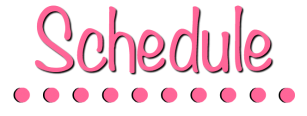

Click here to view the full tour schedule!
Plugging you into the audio community since 2016.


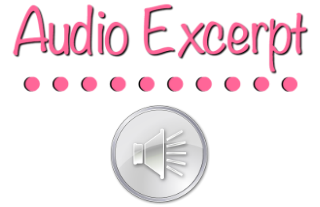


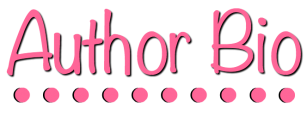
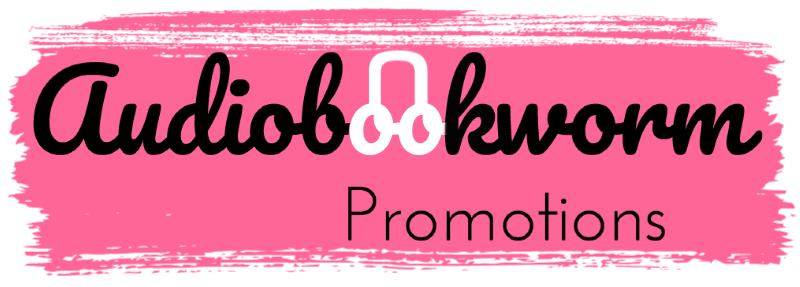
No comments:
Post a Comment